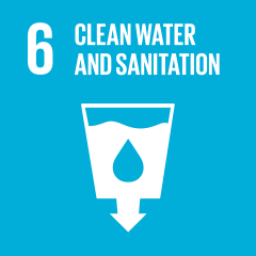SDG 6 - Clean Water and Sanitation

Ensure availability and sustainable management of water and sanitation for all
Water and sanitation coverage in the Pacific is low, and accessibility varies widely across, and between, Pacific countries and territories. The combined coverage levels of basic water and basic sanitation are lower than in any other region in the world, and nearly one-third of Pacific people still rely on surface water sources for drinking (largely due to the high reliance of surface water in rural PNG).
Children and their families are most vulnerable to the WASH-related impacts of climate change.
By 2030, achieve universal and equitable access to safe and affordable drinking water for all
Indicator 6.1.1: Proportion of population using safely managed drinking water services.
Please note this data is not the full SDG indicator of 'safely managed' drinking water (free from contamination and available on the premises), which is being developed as Pacific Islands complete the MICS survey.
By 2030, achieve access to adequate and equitable sanitation and hygiene for all and end open defecation, paying special attention to the needs of women and girls and those in vulnerable situations
Indicator 6.2.1: Proportion of population using safely managed sanitation services including a hand washing facility with soap and water
Indicator 6.2.1: Proportion of population practicing open defecation
By 2030, improve water quality by reducing pollution, eliminating dumping and minimizing release of hazardous chemicals and materials, halving the proportion of untreated wastewater and substantially increasing recycling and safe reuse globally
Indicator 6.3.1: Proportion of domestic and industrial wastewater safely treated
Visualisation(s) not yet available
View 6.3.1 data on PDH.stat
![]() Download Metadata for indicator 6.3.1
Download Metadata for indicator 6.3.1
Indicator 6.3.2: Proportion of bodies of water with good ambient water quality
NOTE: this indicator is not one of the 132 indicators in the Pacific SDG indicator subset
By 2030, substantially increase water-use efficiency across all sectors and ensure sustainable withdrawals and supply of freshwater to address water scarcity and substantially reduce the number of people suffering from water scarcity
Indicator 6.4.1: Change in water-use efficiency over time
NOTE: this indicator is not one of the 132 indicators in the Pacific SDG indicator subset
Indicator 6.4.2: Level of water stress: freshwater withdrawal as a proportion of available freshwater resources
NOTE: this indicator is not one of the 132 indicators in the Pacific SDG indicator subset
By 2030, implement integrated water resources management at all levels, including through transboundary cooperation as appropriate
Indicator 6.5.1: Degree of integrated water resources management implementation (0-100)
NOTE: this indicator is not one of the 132 indicators in the Pacific SDG indicator subset
Indicator 6.5.2: Proportion of transboundary basin area with an operational arrangement for water cooperation
NOTE: this indicator is not one of the 132 indicators in the Pacific SDG indicator subset
By 2020, protect and restore water-related ecosystems, including mountains, forests, wetlands, rivers, aquifers and lakes
Indicator 6.6.1: Change in the extent of water-related ecosystems over time
NOTE: this indicator is not one of the 132 indicators in the Pacific SDG indicator subset
By 2030, expand international cooperation and capacity-building support to developing countries in water- and sanitation-related activities and programmes, including water harvesting, desalination, water efficiency, wastewater treatment, recycling and reuse technologies
Indicator 6.A.1: Amount of water- and sanitation-related official development assistance that is part of a government-coordinated spending plan
NOTE: this indicator is not one of the 132 indicators in the Pacific SDG indicator subset
Support and strengthen the participation of local communities in improving water and sanitation management
Indicator 6.B.1: Proportion of local administrative units with established and operational policies and procedures for participation of local communities in water and sanitation management
NOTE: this indicator is not one of the 132 indicators in the Pacific SDG indicator subset